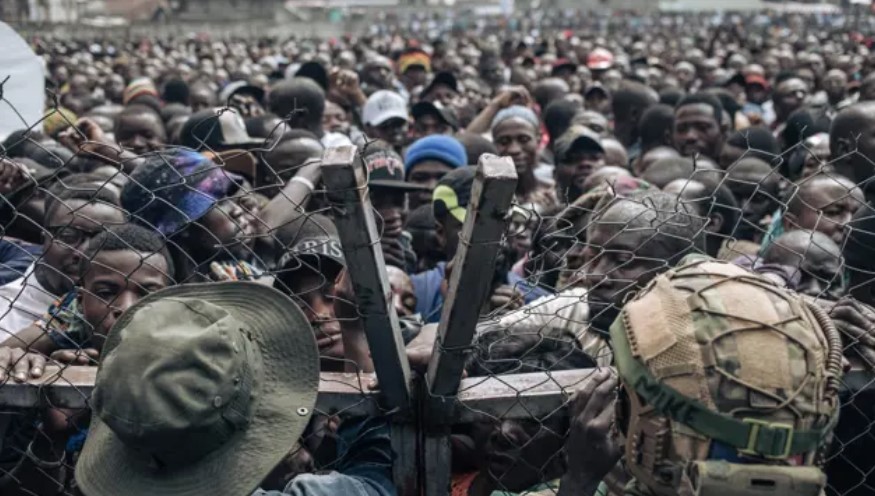Rising Tensions in Eastern Congo
The eastern Democratic Republic of Congo (DRC) is once again witnessing intense fighting as armed groups continue their advance into new territories. On Wednesday, fighters, along with foreign troops, captured two key towns, Ihusi and Kalehe, along a strategic route leading to Bukavu, the capital of South Kivu province. These towns, located approximately 60 kilometers from Bukavu, lie along a major highway that runs alongside Lake Kivu.
Eyewitnesses in Kalehe reported seeing numerous fighters moving through the town, describing the scene as tense and uncertain. Residents expressed fear, as the fighters did not engage with civilians but moved silently through the area. Many locals worry about their safety, as the armed group continues to push further into the region.
The recent escalation in Eastern Congo has prompted an urgent response from the Congolese government. Officials in Kinshasa have called for an emergency meeting with the Southern African Development Community (SADC) and the East African Community (EAC) to assess the situation. The government has also urged regional leaders to impose sanctions and take measures against what they call an act of aggression in Eastern Congo.
Just days earlier, leaders from SADC and EAC met in Tanzania to discuss possible solutions to the ongoing conflict in Eastern Congo. They issued a joint call for an “unconditional ceasefire” set to begin on Thursday. However, while there was a brief pause in the fighting, clashes resumed on Tuesday in Kalehe, an area just 30 kilometers from the strategically important Kavumu airport. This airport remains under the control of the Congolese military, but the continued advance of fighters raises concerns about its security.
Regional Involvement and Growing Conflict
The conflict in eastern Congo has escalated, drawing in neighboring countries and increasing fears of a regional war. The DRC has accused Rwanda of backing armed groups, a claim Rwanda denies. Meanwhile, Burundi has sent 10,000 troops to South Kivu to support the Congolese army. Burundi’s leadership has warned that it will retaliate if attacked and has openly criticized Rwanda, calling it a “bad neighbor.”
Tensions have also affected air travel, with the DRC closing its airspace to Rwandan-registered planes. As a result, Rwanda’s national airline was forced to reroute flights. This decision further reflects the deteriorating diplomatic ties between Kinshasa and Kigali, as the conflict disrupts not only security but also regional transportation.
The humanitarian crisis continues to worsen as thousands are forced to flee their homes. In Goma, armed fighters have ordered displaced people to vacate their camps within 72 hours. Families, including the elderly and disabled, are now leaving in desperation, with no clear destination, adding to the ongoing suffering in the region.
Struggles for Peace and Ongoing Unrest
Efforts to restore peace in eastern Congo have so far failed. Since the armed group re-emerged in 2021, multiple peace talks have been hosted in Angola and Kenya. However, these negotiations have not been successful in stopping the violence. The Congolese government has maintained a firm stance, refusing to engage in direct talks with the group. Instead, the government continues to seek military solutions to the crisis.
Despite this, religious leaders from Kinshasa have attempted a different approach. A delegation of representatives recently traveled to Goma to meet with leaders of a political-military alliance that includes the armed group. The delegation stated that their goal was to understand the realities on the ground and explore ways to bring peace.
One of the representatives emphasized the need for dialogue, stating that many issues in the country could be resolved if Congolese leaders sat together at the negotiating table. However, with no official engagement from the government, it remains uncertain whether these efforts will lead to any significant progress.
The escalating conflict in eastern Congo continues to displace thousands of people, while tensions between regional players grow. As armed groups advance further into Congolese territory, fears of an even larger humanitarian crisis and possible regional war remain high.

